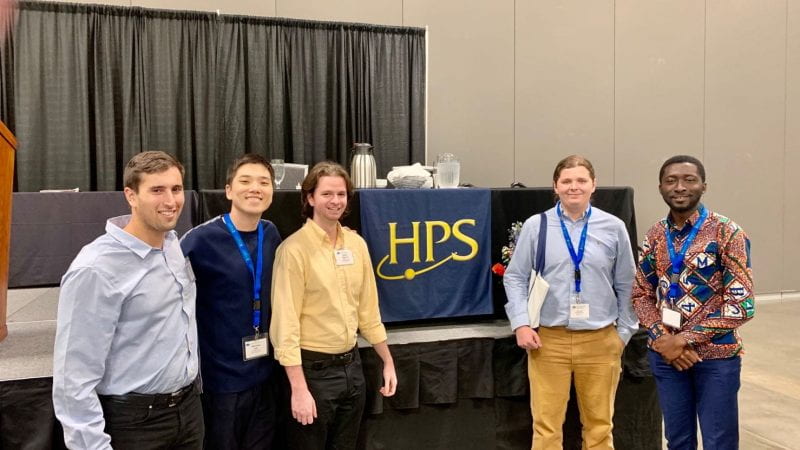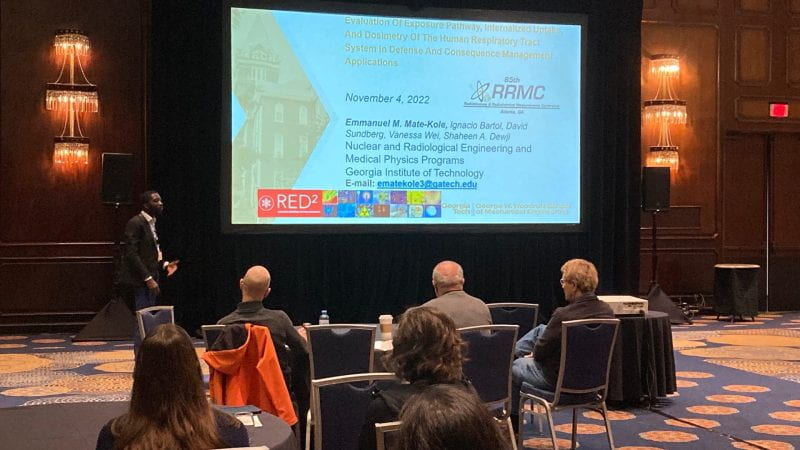We are always looking for new members to join our team! View available positions under the Contact Us tab.

The Radiological Engineering, Detection, and Dosimetry (RED²) Laboratory in the Nuclear & Radiological Engineering and Medical Physics Programs in the George W. Woodruff School of Mechanical Engineering at the Georgia Institute of Technology is led by Dr. Shaheen Dewji. The RED² Laboratory’s research focuses on harnessing both computational capabilities in Monte Carlo radiation transport modeling, machine learning, and experimental measurements for applications in radiation detection, radiation protection and shielding, dosimetry, health physics, and nuclear materials accounting.

RED² research activities include:
Computational Dosimetry
- Development of dose coefficients using age/sex-specific anthropomorphic computational phantoms and radionuclide biokinetic models for occupational nuclear workers, members of the public, nuclear medicine, space, defense, and emergency response;
- Innovative approaches harnessing Monte Carlo and hybrid radiation transport methods;
- Multi-scale multi physics computational fluid-particle dynamics (CFPD) modeling of physiologically-based dosimetric models;
- Uncertainty quantification in external and internal dose assessment;
- Artificial intelligence, machine learning, computer vision, and data science in radiation epidemiology and nuclear medicine diagnostic imaging and therapy.
Radiation Detection
- Employment of validation and verification of gamma-ray spectroscopic detector responses for contaminated environmental media for environmental assessment and decommissioning.
- Field triage assessment of radiation uptake during nuclear, radiological, and fission product release events;
- Nuclear materials control, accounting, and safeguards of special nuclear material using gamma isotopic monitoring and neutron multiplicity counting.
Radiation Shielding
- Specification and optimization using radiation transport simulation and experimental validation of accelerator-driven sources for radiotherapy, with recent focus on FLASH radiotherapy and high energy lasers;
- Metaheuristic algorithmic optimization for shielding design of accelerator facilities.
Nuclear Safety, Security & Nonproliferation Policy, and Nuclear Knowledge Management
- Advanced reactor licensing risk-informed safety/security and dose-based boundary siting under 10CFR Part 53 and 10CFR Part 73;
- Evaluation of nuclear safety, security, and nonproliferation policy, including low dose regulation, nuclear safeguards and nonproliferation, emergency response, nuclear forensics (and here), and nuclear knowledge management (and video here).






